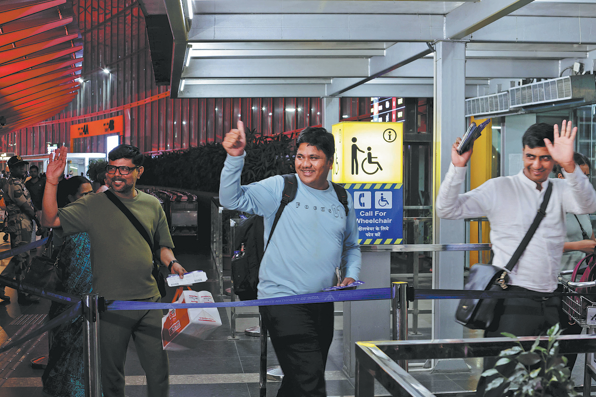Latin America makes bid to bring inflation down

Leaders from across Latin America and the Caribbean gathered virtually on Wednesday to discuss ways to tackle runaway prices and keep inflation down.
People across the region are struggling with the price of everyday goods and the challenges of making big purchases or getting credit given sky-high interest rates caused by efforts to cut inflation from central banks.
Inflation may be the most significant economic problem facing Latin America and the Caribbean, or LAC. Mexico ended 2022 with annual inflation at 7.8 percent, the highest level in two decades, and Colombia's inflation hit 13.2 percent, although it slowed in the first few months of this year.
The meeting, convened by Mexico's President Andres Manuel Lopez Obrador, gathered leaders from Argentina, Belize, Bolivia, Brazil, Chile, Colombia, Cuba, Honduras, Saint Vincent and the Grenadines, and Venezuela.
" (We are) determined to unite regional wills and efforts to guarantee economic growth and development that promotes inclusion, equity, and sustainability of food and nutritional security for our peoples," the leaders said in a joint statement issued following the summit.
Much of the discussion focused on the trade in food and raw materials, as well as efforts to lower prices and find ways to minimize the food shortages that are affecting prices, but the big topic was inflation and what was driving it.
"Inflation works based on expectations. It is not only a matter of monetary policy where the circulating money leads to higher prices but there is also a psychological component of expectations," said Erick Behar, a Colombian professor of economics at Berlin International University of Applied Sciences.
Populist measures such as controlling prices could make things worse in the long term, Behar said. One idea discussed during the summit is to facilitate the barter of goods across borders.
Behar said that it is relevant for governments to let those with knowledge lead the way. "Let the technical people make decisions, let the central banks act, and let the ministries act if they have technical people," he said.
The surge in prices of food and staple goods is one of the main concerns in the region.
The leaders at the meeting said they will promote "the adoption of measures to improve the efficiency of the entry and exit of products through ports and borders, and the exchange of intermediate inputs, machinery and technology for the benefit of agricultural productivity".
"The high-interest rates are creating a recess in the development of new projects in all the socioeconomic sectors. Not only mortgage creditors are affected but also building companies that find it more difficult to access the credit," said Jose Londono, manager at IGIT SAS, a Bogota-based real-estate consultancy and broker firm managing properties.
The writer is a freelance journalist for China Daily.

































